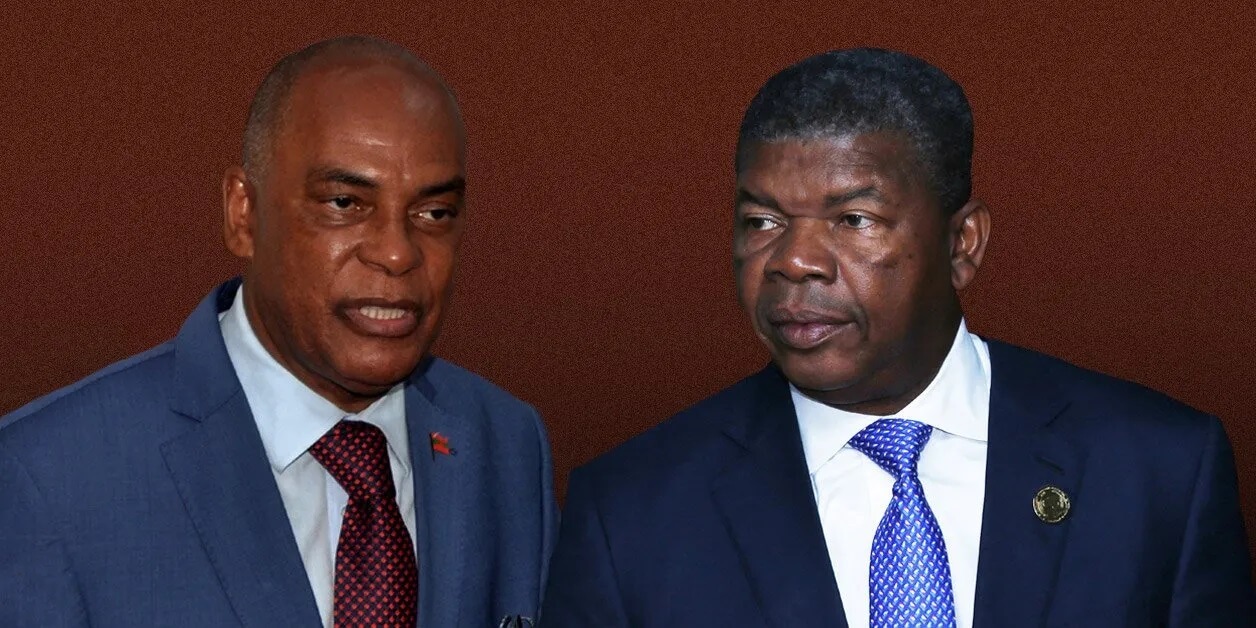With over 97% of ballots counted on Thursday, Angola’s National Election Commission (CNE) declared a narrow victory for President João Lourenço’s MPLA Party (People’s Movement for the Liberation of Angola) with a 51.7% vote share, assuring him of a second five-year term in office and extending the MPLA’s five-decade-long rule.
Opposition parties have deemed the preliminary results “unreliable.” However, CNE spokesperson Lucas Quilondo noted that the Commission does not expect any “substantial changes” in the final tally.
Although the MPLA continues its reign, it will win a lower-than-ever parliamentary majority of 122 out of 240 seats. Lourenço will thus be forced to seek greater coordination with opposition parties, particularly main opposition leader Adalberto Costa Júnior’s National Union for the Total Independence of Angola (UNITA), which secured 44.5% of the votes.
“For the first time in the history of #Angola the coming parliament will be more democratic … The 2022 elections will be remembered for the humiliating defeat of incumbent President João Lourenço’s party in Luanda, the Angolan capital.”https://t.co/F1eIoglAJz @makaangola
— Jeffrey Smith (@Smith_JeffreyT) August 25, 2022
The MPLA will also be gearing up for a stern opposition to its victory, with UNITA saying the CNE’s results have “no legal basis.” In fact, the opposition party even announced a parallel vote count which showed it surpassing the MPLA with a 46.89% vote share.
In this regard, the party’s deputy leader, Abel Chivukuvuku, said the CNE tally does not “correspond to reality,” raising concerns about post-electoral violence.
In fact, the preliminary declaration has also evoked a mixed reaction among voters, with some citizens saying they do not “believe in these results” and lamenting that “the country is not going to change, it’s always the same story.” Some have even alleged vote tampering and questioned the MPLA’s influence over the country’s electoral institutions.
Today, @Angolans have cast their ballots for the president...will it be #MPLA's incumbent Joao #Laurenco or #UNITA challenger Adalberto #Costa? The stake are high in any case in this @OPECSecretariat member nation. And will the outcome be peaceful or violent yet again? https://t.co/8QcFZ8BuKX
— David A. Andelman (@DavidAndelman) August 24, 2022
MPLA spokesperson Rui Falcão, however, rejected the accusations and said that “anyone who makes a complaint has to present evidence and has to deal with whoever has the competence to do so. The MPLA is a player. It is not the referee.”
In fact, fears of possible electoral fraud were apparent prior to the election as well. UNITA had even asked its supporters to stay near polling stations after casting their votes. Furthermore, Mudei Movement activists photographed polling sheets in as many polling booths as possible to counter a possible fraud.
Against this backdrop, 80,000 police officers were deployed across the country owing to fears of post-electoral violence. While state news agency Angop reported on Thursday that while no disorder was reported in the key provinces of Namibe, Cuando Cubango, and Cunene, the National Police arrested 142 persons in Luanda for minor electoral offences including forgery of documents, injury against authority, concentration less than 100 metres from polling stations after the vote, and incitement to revolt.
Happy to see so many international journalists & activists travelling to Angola for the elections, this time hassle free. In the midst of many frustrations, especially for the youth, we have to acknowledge that Angola has finally opened up to the region, the continent & the world
— Zenaida Machado (@zenaidamz) August 24, 2022
Despite Angpop’s claims, however, Amnesty International alleged that the government indulged in “an unprecedented crackdown on human rights, including unlawful killings and arbitrary arrests, in the lead up to the 24 August election.”
Nevertheless, no major poll disturbances were recorded. This was reaffirmed by international electoral observer mission Rojae, whose chief, José Carlos Barreiro, reiterated that “slight disruptions and failures of certain mass delegates” in some provinces did not hamper the election, which he said was successfully completed in accordance with international requirements and Angolan law.
Thursday’s declaration comes at a critical juncture for President Lourenço’s tenure, as the country faces skyrocketing rates of inflation (34%), unemployment (30%), poverty (50%), an impending drought, and rampant corruption and nepotism in the public sector. The deteriorating economic situation has forced the government to seek a $4.5 billion bailout from the International Monetary Fund (IMF).
Unlawful killings, arbitrary arrests and hunger have set the tone for elections in Angola.
— AmnestySouthernAfrica (@AmnestySARO) August 16, 2022
As the country heads to the polls next week, read our recommendations to make the vote meaningful for human rights observance in Angola. https://t.co/m8SqPX0Qeq pic.twitter.com/Fk2VcWTmf6
Angola has been ruled by MPLA since its independence from Portugal in 1975. Multi-party democracy was only instated after a long spell of civil war, fought by UNITA with backing from the United States, which ended only in 2002. In fact, both parties have for long functioned as rival Cold War proxies, with Lourenço being a Soviet loyalist.
In this respect, an UNITA victory could have resulted in a major shift in Angola’s position on the Ukraine war.
Angola is also the second-largest oil-producing country in sub-Saharan Africa and an important mediator in regional conflicts, such as between Rwanda and the Democratic Republic of Congo, making it a significant regional and global power.

